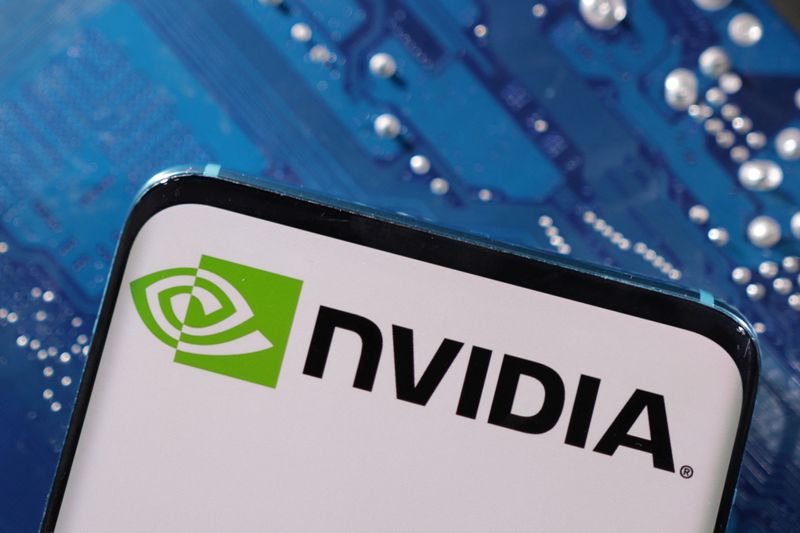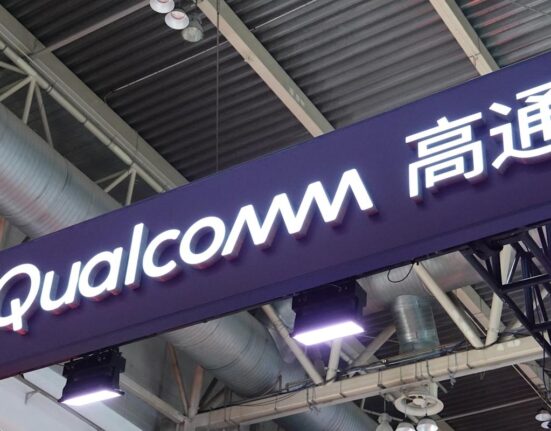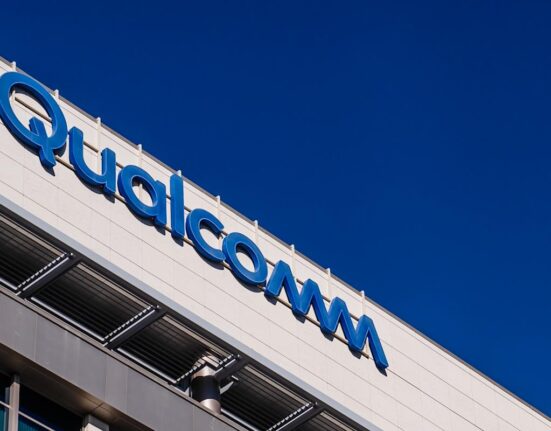(Reuters) -China has intensified enforcement of its import restrictions on U.S. chips, including Nvidia‘s artificial intelligence processors, the Financial Times reported, as Beijing sharpens its focus on promoting home-grown semiconductor production.
Chinese customs officials were dispatched to key ports to conduct strict checks on semiconductor shipments, the newspaper said on Friday, citing unidentified sources.
China customs officials did not immediately respond to a Reuters’ request for comment, while an Nvidia spokesperson declined to comment on the report.
The newspaper said the inspections targeted Nvidia’s H20 and RTX Pro 6000D, designed to adhere to U.S. export controls, initially.
The checks have been extended to include all advanced semiconductor products that breach U.S. export curbs, the report said.
Reuters could not immediately verify the report.
The extent to which China has access to Nvidia’s world-leading chips has been a key point of friction between the U.S. and China.
The Financial Times newspaper had previously reported that at least $1 billion worth of Nvidia’s top AI chips were smuggled and sold in China in the three months from May. Reuters could not independently verify the report.
Nvidia has a new AI chip ‘RTX6000D’ tailored for the Chinese market, Reuters reported last month, but it has seen only lukewarm demand with some major tech firms opting not to place orders.
In August, U.S. President Donald Trump flagged the possibility of allowing Nvidia to sell more advanced chips in China.
Authorities in China have previously accused Nvidia of violating anti-monopoly law. They have also ordered top tech firms to halt purchases of Nvidia’s AI chips and cancel existing orders, FT reported in September.
Despite advances by Huawei and other Chinese chip firms in recent years, people involved in engineering operations at Chinese tech firms say Nvidia’s chips perform better.
(Reporting by Ananya Palyekar in Bengaluru; Editing by Mrigank Dhaniwala, Sherry Jacob-Phillips and Subhranshu Sahu)
(Reuters) -China has intensified enforcement of its import restrictions on U.S. chips, including Nvidia‘s artificial intelligence processors, the Financial Times reported, as Beijing sharpens its focus on promoting home-grown semiconductor production.
Chinese customs officials were dispatched to key ports to conduct strict checks on semiconductor shipments, the newspaper said on Friday, citing unidentified sources.
China customs officials did not immediately respond to a Reuters’ request for comment, while an Nvidia spokesperson declined to comment on the report.
The newspaper said the inspections targeted Nvidia’s H20 and RTX Pro 6000D, designed to adhere to U.S. export controls, initially.
The checks have been extended to include all advanced semiconductor products that breach U.S. export curbs, the report said.
Reuters could not immediately verify the report.
The extent to which China has access to Nvidia’s world-leading chips has been a key point of friction between the U.S. and China.
The Financial Times newspaper had previously reported that at least $1 billion worth of Nvidia’s top AI chips were smuggled and sold in China in the three months from May. Reuters could not independently verify the report.
Nvidia has a new AI chip ‘RTX6000D’ tailored for the Chinese market, Reuters reported last month, but it has seen only lukewarm demand with some major tech firms opting not to place orders.
In August, U.S. President Donald Trump flagged the possibility of allowing Nvidia to sell more advanced chips in China.
Authorities in China have previously accused Nvidia of violating anti-monopoly law. They have also ordered top tech firms to halt purchases of Nvidia’s AI chips and cancel existing orders, FT reported in September.
Despite advances by Huawei and other Chinese chip firms in recent years, people involved in engineering operations at Chinese tech firms say Nvidia’s chips perform better.
(Reporting by Ananya Palyekar in Bengaluru; Editing by Mrigank Dhaniwala, Sherry Jacob-Phillips and Subhranshu Sahu)











Leave feedback about this